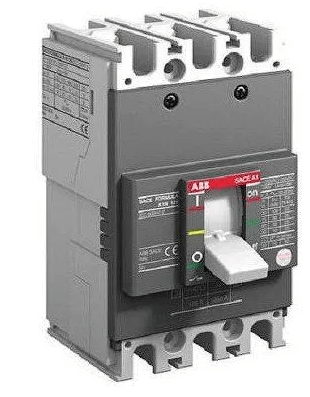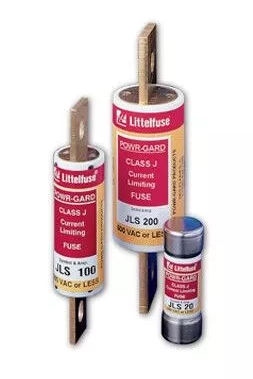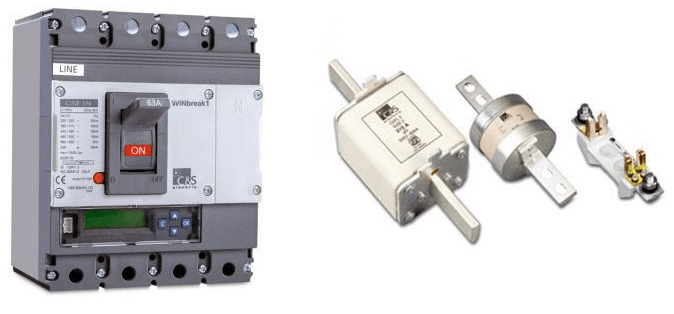While you can find the old homes with a fuse box, the newly built houses and apartments usually have a circuit breaker. Still, confused? Curious about these two? Here are all the details that you need to know-
1. Circuit Breakers
Circuit breakers are automated electric switches that protect the electric circuit from damage due to overload or short circuits. In addition, it prevents the flow of current after a fault. After the fault, you can reset it manually or automatically to resuming the electric connection. While Thomas Alva Edison is credited for discovering the prototype, Higo Sliotz is the modern inventor. He designed the modern-age thermal-magnetic breakers that you often see now. Circuit breakers are usually seen in homes that were built after 1890. These are modern versions and come in different sizes. While there are miniature ones, the large plants and industries also use significant variants of circuit breakers.
Advantages and Disadvantages
Circuit breakers have multiple advantages for any home.
These are often faster than fuses and more sensitive to electric overload. Circuit breakers are no one-time items. You can use them for years without any disturbance. Then, after electric turbulence, you can easily rest or flip the switch to resume electricity. These are more reliable and can manage heavier loads easily. Circuit breakers come in different sizes and shapes to accommodate the demands.
But, a circuit breaker also has its disadvantages.
In the case of circuit breakers, it often may not serve its purpose if the inner workings are not up to the mark. Circuit breakers also work slower and can cause partial damages to the home appliances. The cost of a circuit breaker is higher. Its maintenance and installation are also expensive.
2. Fuse Types
Fuse boxes divide the electrical power feed of the subsidiary line. It is a thin metal or ceramic box which contains the wire filament. It is plugged into the central fuse box. During any overload, excessive heat melts the filament. As a result, it cuts off the supply and prevents any electrical hazards in your home. In most cases, the fuse is attached to the electric panel or above the switch panel. It is often encased to make it easier to distinguish from other switches.
Advantages and Disadvantages
Fuse boxes are popular due to multiple advantages-
It is one of the most affordable circuit protection boards. The fuses require less maintenance. It is a simple machine, and one can easily install the fuse themselves. The fuses can interrupt massive short circuit current flow without any noise, flame, or smoke. Houses are smaller, and the box can be customized according to the demand or electric supply. Fuse inverse time current offers overload protection.
But, fuse boxes also have a lot of disadvantages-
A fuse is a one-time switch. However, during the circuit overload, the thin filament blows off and becomes unusable. It needs a new replacement. Hence, you cannot resume electric supply instantly. A fuse can be hard to find if it is identical to the sizes and shapes of the electric switches. Fuses usually lose their efficiency with time. Therefore, you need to replace them after a few years for adequate protection regularly. Fuses have less breaking capacity.
What Is the Role of Fuse Boxes or Circuit Breakers?
The purpose of a circuit breaker or a fuse box is the same. It prevents any electrical hazard like fire, electric outage due to overload, and short circuit. During any electrical overload, the circuit breaker or fuse box cuts down the electric power supply. Therefore, it keeps the home and its inhabitants safe. While the circuit breakers only support line interruption, the fuse boxes can also detect the abnormality in any electrical line.
Comparison Table – Circuit Breaker Vs Fuse Box
Key Differences to Compare Circuit Breaker vs. Fuse
As said before, despite having relatively the same usage, circuit breakers and fuse boxes are different in many ways. The expected differences are-
A circuit box is great because it is a reusable item. You can reset it manually. Some breakers also have an auto-reset mechanism. Hence, the electric connection resumes after the overload. On the other hand, the fuse is a one-time appliance and needs a replacement. During that time, you cannot use electric appliances. Circuit boxes are expensive and also require expert installation assistance. But they last for a long time. On the other hand, even though fuses are inexpensive, the frequent replacement cost adds to the burden. A circuit breaker can only interrupt the electric supply during an emergency. But, the fuses detect the problem in line and also interrupt the supply. A fuse is high-speed and takes only 0.002 seconds to respond to overload. On the contrary, circuit breakers take more time, nearly 0.1 seconds. Circuit boxes can handle huge loads and have a higher breaking capacity. But a fuse has less capacity. Due to this, the circuit boxes are often used in plants and large workshops. But, due to the limited breaking capacity, fuses are only used for individual and small-scale consumption. Circuit breakers do not make hissing or popping sound like a fuse box.
What About Safety Precautions?
Whatever you use in your home, you need to take care of the following safety precautions-
You should check the breaking codes of the building or neighborhood before you install electric wires in your home. The electric panel containing circuit breakers or fuse boxes should not be left exposed. It should always be covered. If the fuse or circuit breaker frequently trips, replacing a fuse box or resetting the breaker will not be enough. Get your home examined by an expert electrician to find the root of the problem. If you use a fuse box, make sure to replace it from time to time to get the best possible results.
Conclusion
A circuit breaker or a fuse box is used to protect the homes and electrical appliances from any complicated caused by electrical overload. If you have an older home, it may come with fuse boxes. In most cases, modern apartments have circuit breakers. Whatever you use, it should be used and regularly examined by an expert to ensure your home and your valuable appliances remain safe at any time. Comment * Name * Email * Website
Δ








![]()